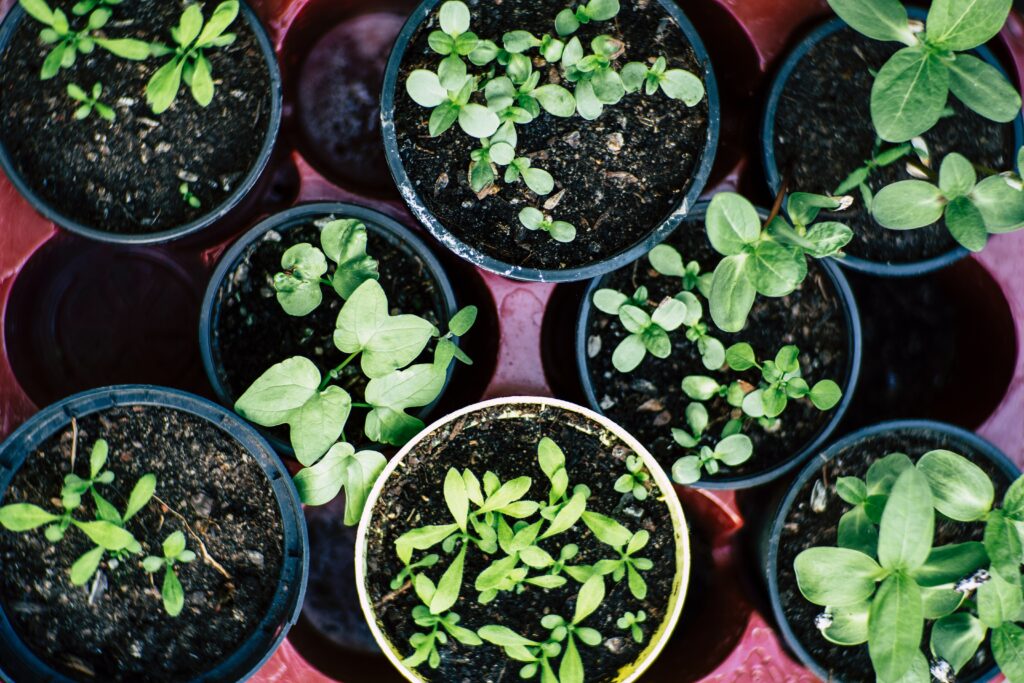Seed Catalogs: Terms to Know Before You Buy – Part 1
go.ncsu.edu/readext?769507
en Español / em Português
El inglés es el idioma de control de esta página. En la medida en que haya algún conflicto entre la traducción al inglés y la traducción, el inglés prevalece.
Al hacer clic en el enlace de traducción se activa un servicio de traducción gratuito para convertir la página al español. Al igual que con cualquier traducción por Internet, la conversión no es sensible al contexto y puede que no traduzca el texto en su significado original. NC State Extension no garantiza la exactitud del texto traducido. Por favor, tenga en cuenta que algunas aplicaciones y/o servicios pueden no funcionar como se espera cuando se traducen.
Português
Inglês é o idioma de controle desta página. Na medida que haja algum conflito entre o texto original em Inglês e a tradução, o Inglês prevalece.
Ao clicar no link de tradução, um serviço gratuito de tradução será ativado para converter a página para o Português. Como em qualquer tradução pela internet, a conversão não é sensivel ao contexto e pode não ocorrer a tradução para o significado orginal. O serviço de Extensão da Carolina do Norte (NC State Extension) não garante a exatidão do texto traduzido. Por favor, observe que algumas funções ou serviços podem não funcionar como esperado após a tradução.
English
English is the controlling language of this page. To the extent there is any conflict between the English text and the translation, English controls.
Clicking on the translation link activates a free translation service to convert the page to Spanish. As with any Internet translation, the conversion is not context-sensitive and may not translate the text to its original meaning. NC State Extension does not guarantee the accuracy of the translated text. Please note that some applications and/or services may not function as expected when translated.
Collapse ▲I don’t know about you, but I have a stack of seed and plant catalogs that started arriving around Thanksgiving. I love to look at all the lovely photos and dream about and then plan what I will grow in my garden in the new year.
Many folks who started gardening in 2020 and maybe even long time gardeners may be confused by some of the terms used in the catalogs. In order to make sure you have the most success with what you grow, you need to understand those terms before you order and pay for seeds or plants.
A Cultivar is a combination of the words ‘cultivated’ and ‘variety’ which means that a certain plant has been bred or selected for certain characteristics such as flower color, fruit size, or shelf life.
Open-Pollinated plants are ones where the crop cross-pollinates itself & the offspring produced is nearly identical to the parent. The seeds from these plants can be saved and you can expect an almost exact replica of the parent plant and fruit.
Hybrids are from seeds produced by a controlled cross-breeding of two distinct, open-pollinated cultivars. Seed harvested from this intentional cross-breeding are called F1 hybrids. Hybrids can be vigorous, high producers, and may have been bred to give some disease resistance. Seeds from the fruit of hybrid plants will not produce the same plant like the open-pollinated ones, so you must purchase new seed each year.
 Heirlooms are seeds or plants that are open-pollinated cultivars that persist because their seed is saved and passed down from one generation to the next. They often have a colorful history and add interest to the garden and dinner table. I had an Extension Master Gardener℠ volunteer in Virginia who grew a tomato every year that she called ‘Uncle Joe’s Tomato’ that had been saved & passed down in her family for several generations. Often, Heirlooms are more susceptible in diseases and insects.
Heirlooms are seeds or plants that are open-pollinated cultivars that persist because their seed is saved and passed down from one generation to the next. They often have a colorful history and add interest to the garden and dinner table. I had an Extension Master Gardener℠ volunteer in Virginia who grew a tomato every year that she called ‘Uncle Joe’s Tomato’ that had been saved & passed down in her family for several generations. Often, Heirlooms are more susceptible in diseases and insects.
Clones are plants that are replicas of the parent plan with the exact same genetic material as the parent. They are produced by vegetative cuttings or through tissue culture. Strawberries and blackberries are examples of plants that are cloned.
Join the Extension Master Gardener℠ volunteers in Union County for the February Successful Gardener program, this Thursday, February 4, 2021, at 7 p.m., via Zoom. The speaker will be Jason Loseke and he will be discussing Erosion Control and Water Management in Your Garden. Call me to get the Zoom link at 704-283-3729 or via email at dddillio@ncsu.edu.




